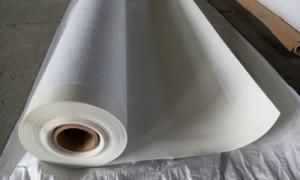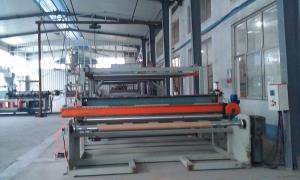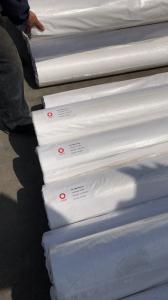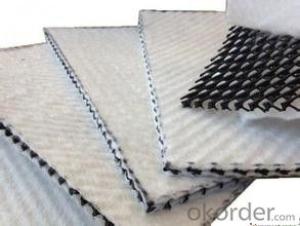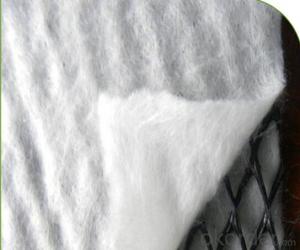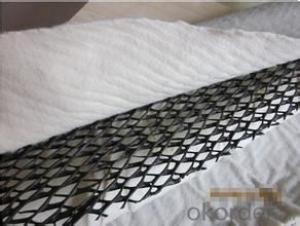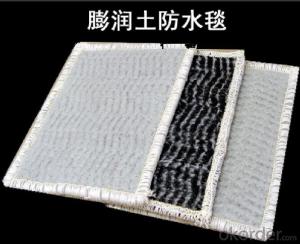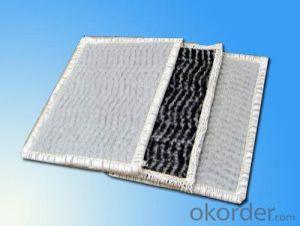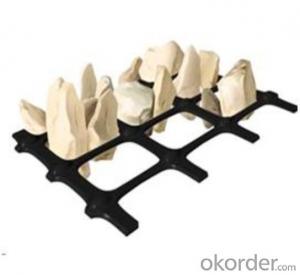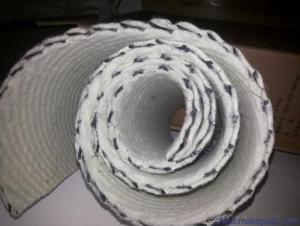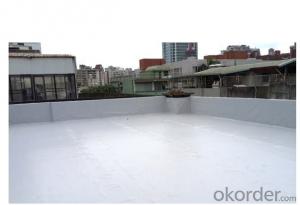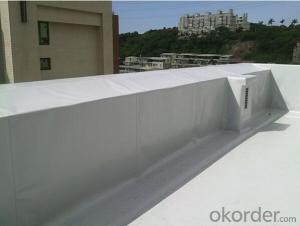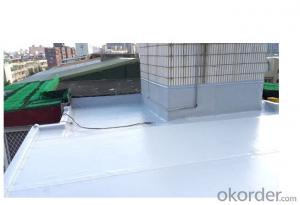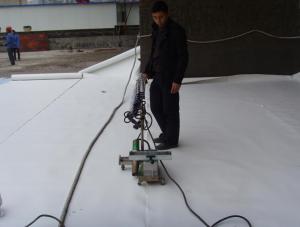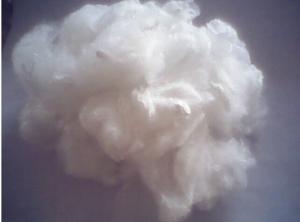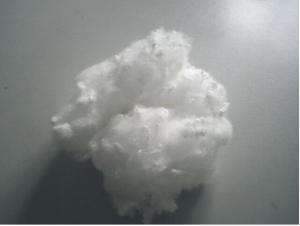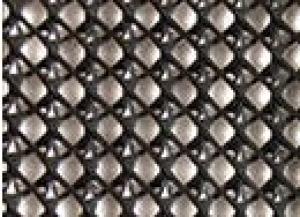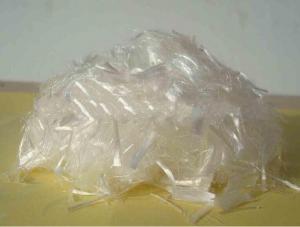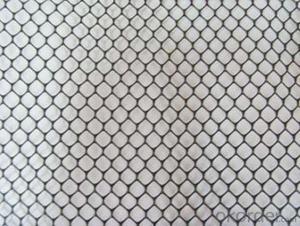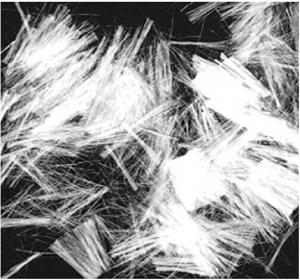PVC Waterproof Membrane/PVC Membrane/PVC Roof Membrane
- Loading Port:
- Qingdao
- Payment Terms:
- TT or LC
- Min Order Qty:
- 1000 m²
- Supply Capability:
- 500000 m²/month
OKorder Service Pledge
OKorder Financial Service
You Might Also Like
PVC Waterproof Membrane Introduction
Polyvinyl Chloride (PVC) waterproof membrane is a new polymer waterproof membrane which is made from polyvinyl chloride resin, and mixed with plasticizer, filler, antioxygen, ultraviolet absorber and other auxiliaries.
PVC Waterproof Membrane Specification
Length | 20m/roll or customized |
Width | 2.05m |
Thickness | 1.2mm; 1.5mm; 2.0mm |
If exposed | Exposed, Non-exposed |
Type | Homogeneous, Reinforced with fabric backing |
Color | White/Grey or customized |
PVC Waterproof Membrane Technical Data Sheet
PVC Waterproof Membrane | Standard: GB12952-2011 | ||||||
NO. | Item | Unit | Value | ||||
H | L | P | |||||
1 | Resin Thickness on Middle Mesh ≥ | mm | - | - | 0.4 | ||
2 | Tensile Properties | Max. Strength ≥ | N/cm | - | 120 | 250 | |
Tensile Strength ≥ | Mpa | 10.0 | - | - | |||
Elongation at Max. Strength ≥ | % | - | - | 15 | |||
Breaking Elongation ≥ | % | 200 | 150 | - | |||
3 | Dimensional Stability after Heat Treatment ≤ | % | 2.0 | 1.0 | 0.5 | ||
4 | Foldability at Low Temperature | -25℃ No cracks | |||||
5 | Watertightness | 0.3Mpa, 2h No penetration | |||||
6 | Resistance to Impact | 0.5kg*m, No penetration | |||||
7 | Resistance to Static Loading* | - | - | 20kgs No penetration | |||
8 | Joint Peel Strength≥ | N/mm | 4.0 or membrane broken | 3.0 | |||
9 | Right Angle Tearing Strength≥ | N/mm | 50 | - | - | ||
10 | Trapezoid Tearing Strength≥ | N | - | 150 | 250 | ||
11 | Water Absorption (70℃, 168h) | After immersing≤ | % | 4.0 | |||
After drying≥ | % | -0.40 | |||||
12 | Aging in Hot Weather (80℃) | Time | 672h | ||||
Appearance | No bubbles, cracks, layering, sticky,holes | ||||||
Max. Tensile Retention Rate ≥ | % | - | 85 | 85 | |||
Tensile Strength Retention Rate ≥ | % | 85 | - | - | |||
Elongation Retention Rate at Max. Tensile ≥ | % | - | - | 80 | |||
Breaking elongation Retention rate≥ | % | 80 | 80 | - | |||
Low Temperature Flexibility | -20℃ No cracks | ||||||
13 | Chemical resistance
| Appearance | No bubbles, cracks, layering, sticky, holes | ||||
Max. Tensile Retention Rate ≥ | % | - | 85 | 85 | |||
Tensile Strength Retention Rate ≥ | % | 85 | - | - | |||
Elongation Retention Rate at Max. Tensile ≥ | % | - | - | 80 | |||
Breaking elongation Retention rate | % | 80 | 80 | - | |||
Low Temperature Flexibility | -20℃ No cracks | ||||||
14 | Artificial aging* | Time | 1500h* | ||||
Appearance | No bubbles, cracks, layering, sticky, holes | ||||||
Max. Tensile Retention Rate ≥ | % | - | 85 | 85 | |||
Tensile Strength Retention Rate ≥ | % | 85 | - | - | |||
Elongation Retention Rate at Max. Tensile ≥ | % | - | - | 80 | |||
Breaking elongation Retention rate | % | 80 | 80 | - | |||
Low Temperature Flexibility | -20℃ No cracks | ||||||
Remarks: *Resistance to static load is for PVC membranes used on roofing *The time of artificial aging of single-ply roofing membrane is 2500h. *Non-exposed membrane does not require determination of artificial aging. | |||||||
PVC Waterproof Membrane Property
1) Excellent aging resistance.
2) Root resistant penetration, specially used on planting roof.
3) Welding installation. Joints are solid and environment friendly, no pollution.
4) High tensile strength, good elongation and dimensional stability.
5) Good plasticity, easy and suitable for details installation.
6) Fireproof. Fire extinguished out of the ignition resource.
7) Surface is smooth, no fading and dirty resistant.
PVC Waterproof Membrane Application
--All kinds of roofs, such as steel structure roof, planted roof etc.
--Underground engineering, such as building basement, subways, tunnels, air raid shelter, etc.
--Other projects like artificial lake, dam, water reservoir, grain storehouse, etc.



- Q: How do earthwork products contribute to soil erosion prevention?
- Earthwork products, such as erosion control blankets, sediment fences, and retaining walls, play a crucial role in preventing soil erosion. These products are designed to stabilize slopes, control runoff, and protect bare soil from the impacts of wind and water erosion. By providing a physical barrier, promoting water infiltration, and reducing the velocity of runoff, earthwork products help to retain soil in place, prevent sedimentation in water bodies, and promote the establishment of vegetation, ultimately minimizing soil erosion.
- Q: How do earthwork products contribute to noise reduction in construction projects?
- Earthwork products contribute to noise reduction in construction projects by providing a natural barrier that absorbs and muffles sound. These products, such as soil, gravel, or rock, can be used to create berms, embankments, or retaining walls, which act as sound barriers between construction sites and nearby areas. The dense and compact nature of these materials helps to block and minimize the transmission of noise, reducing the overall impact of construction activities on the surrounding environment.
- Q: Can geomembranes be used for landfill caps?
- Yes, geomembranes can be used for landfill caps. They are often used as an impermeable barrier to prevent the leakage of contaminants from the landfill into the surrounding environment. Geomembranes provide an effective solution for ensuring the long-term containment of waste materials and protecting the soil and groundwater from pollution.
- Q: How are geotextile bags used in sediment control during dredging operations?
- Geotextile bags are commonly used in sediment control during dredging operations as they effectively contain and filter sediment, preventing it from spreading into water bodies. These bags are filled with dredged sediment and their permeable fabric allows water to drain out while retaining the sediment. This helps in reducing turbidity and sedimentation in the surrounding areas, minimizing the environmental impact of dredging activities.
- Q: What are the main features of gypsum for civil engineering materials?
- Building gypsum in the water after mixing, the slurry in a few minutes began to lose plasticity, complete loss of plasticity within 30min and produce strength, about a week or so completely hardened. To meet the construction requirements, need to join the retarder, such as borax, potassium tartrate, citric acid, polyvinyl alcohol, lime activated bone glue or leather and so on.
- Q: Material molding and control technology and civil engineering is not near professional?
- Are engineering but not near professional
- Q: On the Title of Civil Engineering
- one. No, two Influence, three, to the unit for your registration
- Q: Can earthwork products be used for fish passage construction?
- Yes, earthwork products can be used for fish passage construction.
- Q: Are earthwork products resistant to weathering and deterioration?
- No, earthwork products are not inherently resistant to weathering and deterioration. They are susceptible to erosion, cracking, and degradation over time due to exposure to various environmental factors such as rain, wind, temperature fluctuations, and natural wear and tear. Proper maintenance and protective measures are often necessary to ensure their longevity.
- Q: How are geosynthetic erosion control blankets used in earthwork?
- Geosynthetic erosion control blankets are used in earthwork to prevent soil erosion and promote vegetation growth. They are placed on slopes, embankments, or disturbed areas to stabilize the soil, prevent rainfall runoff, and protect against wind erosion. These blankets provide a physical barrier that allows water to infiltrate while retaining soil particles, reducing erosion and sedimentation. Additionally, they promote the establishment of vegetation by providing a favorable environment for seed germination and root growth. Overall, geosynthetic erosion control blankets are essential in earthwork to ensure long-term stability and sustainability of the soil.
Send your message to us
PVC Waterproof Membrane/PVC Membrane/PVC Roof Membrane
- Loading Port:
- Qingdao
- Payment Terms:
- TT or LC
- Min Order Qty:
- 1000 m²
- Supply Capability:
- 500000 m²/month
OKorder Service Pledge
OKorder Financial Service
Similar products
Hot products
Hot Searches
Related keywords
